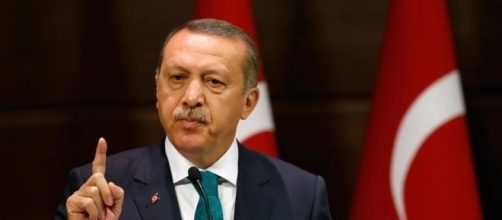When asked about the terrorist attack that left his brother wounded at Istanbul's Reina nightclub on New Year's night, Zeynep Ozman said that there was no life left in the city. He said that he did not want to get political, but that the government does not have control and that terrorism was everywhere. He could not help but see it as the new norm, which he refused to accept.
Sunday night, a man dressed as Santa Claus entered the nightclub and opened fire killing 39 people and wounding almost 70. As of this writing, there is a nationwide manhunt for the suspect for which no terror group has claimed responsibility for.
The nightclub is known to be visited by soap opera stars, athletes, and tourists. It's been reported that the majority of those killed were tourists from Arab countries.
Erdogan severely weakens Turkey's National Security
"I had to lift several bodies from on top of me before I could get out," said one woman at the nightclub in Istanbul https://t.co/SCZGZLmmN0
— The New York Times (@nytimes) January 1, 2017
One report by the "New York Times" reviews some of the attacks that took place in Turkey throughout 2016, along with the recent one. Weeks before in mid-December, the Russian ambassador to Turkey was assassinated by a lone gunman while giving a speech at an Istanbul art gallery. Only a week prior, a car bomb was detonated in the same city, which was blamed on the PKK.
Months before that, two gunmen stormed the Atatürk Airport, killing 42 in a mass shooting and detonating suicide vests. Both the "New York Times" and an opinion piece via Blasting News set the same tone of skepticism towards Turkish president Erdogan, who made a statement following the massacre, promising to destroy terrorist threats.
The view now is that Erdogan's control is slipping away. In July he claimed that a coup attempt to unseat him was made to take democracy away from the people. As a result, he's led a nationwide crackdown on journalists, citizens, politicians, and even justices, to purge the government of the opposition, even blaming a former ally who is living in self-imposed exile in the U.S., Fethullah Gülen for the coup.
It gave him every reason to go after the Gülen movement and anyone who supported it. He's also made demands for the United States to extradite him to Turkey so that he faces charges, which the State Department under President Obama has reviewed and sees no evidence of the claims. With Erdogan "discovering" new enemies and terrorism in neighboring Iraq and Syria, there's more uncertainty as to how he's going to destroy terrorism.
Erdogan attempts to transfer parliamentary power to the presidency
As mentioned earlier, with Turkish president Erdogan cracking down on his opposition, there's little reason to believe that he will not be able to intimidate power in his direction. Which is why members of The Grand National Assembly of Turkey feel that Erdogan will have the votes to transfer parliamentary power for a vote this January.
The Parliamentary Commission has approved the reform which will not only transfer that power to the presidency but will also take that of the Prime Minister. Both his conservative party AKP and the ultra-conservative MHP support the reform, for which a referendum would likely be held by Spring.
All of those who are opposed say that the reform will create a dictatorship which many Western democracies have alluded to since the "coup" last year. As of late, Turkey's relationship with NATO, the United Nations and all surrounding countries that have been involved with his policies, have questioned his motives. A once tense relationship with the Russian government has become less contentious, where it's said that they have become more united in order to fight terrorism.
The incoming Trump administration is modeled under the same strongman image that Erdogan and Putin put forward, likely to be consolidated after his inauguration. Though it is still unknown just how he plans to destroy terrorism, there's no doubt that the Sunni Muslim state will attempt to find it in its embrace of totalitarianism.

